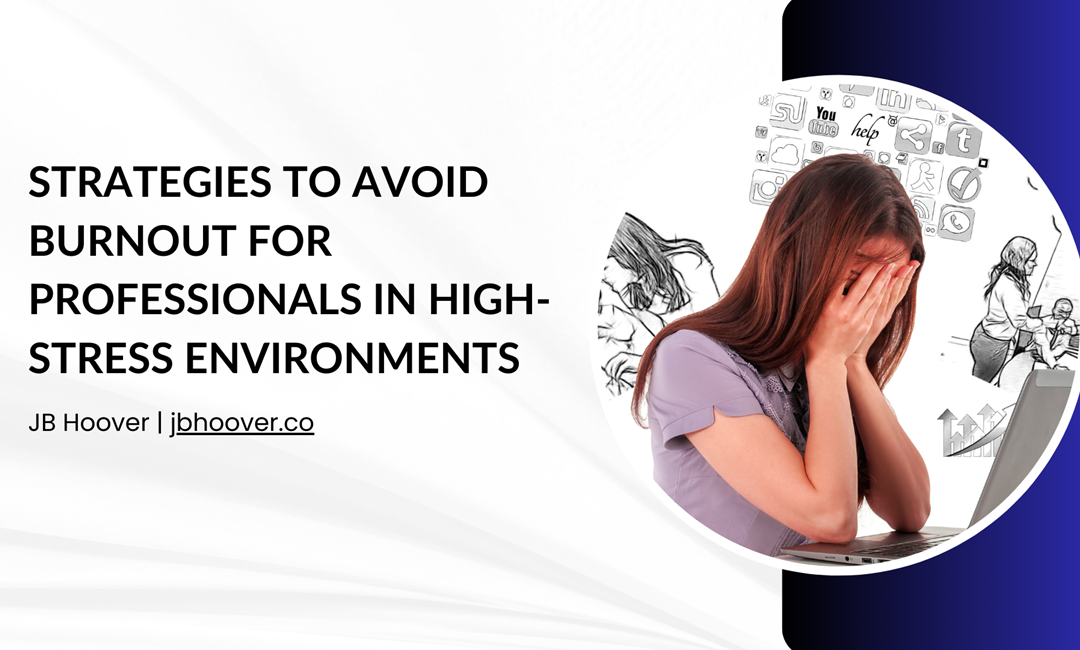In today’s fast-paced and demanding work culture, professionals in high-stress environments often find themselves at risk of burnout. Burnout, characterized by feelings of exhaustion, cynicism, and reduced efficacy, can have detrimental effects on both mental and physical health, as well as job performance. However, by implementing effective strategies, individuals can mitigate the risk of burnout and maintain their well-being. Here are some key strategies to avoid burnout:
Set Boundaries
Establish clear boundaries between work and personal life to prevent work from consuming all aspects of your existence. Define specific work hours and stick to them as much as possible. When you’re off the clock, resist the temptation to check emails or take work calls. Prioritize self-care activities and spend time engaging in hobbies, spending time with loved ones, and relaxing.
Practice Time Management
Efficient time management can help reduce stress and prevent burnout. Prioritize tasks based on importance and deadlines, and break larger projects into smaller, more manageable tasks. Use tools such as calendars, planners, and to-do lists to stay organized and on track. Be realistic about what you can accomplish in a day and learn to delegate tasks when necessary.
Take Regular Breaks
Make it a priority to take regular breaks throughout the day to rest and recharge. Step away from your desk, go for a short walk, or engage in brief relaxation exercises to clear your mind and reduce stress. Incorporate micro-breaks into your routine, such as deep breathing exercises or stretching, to prevent mental and physical fatigue.
Cultivate Supportive Relationships
Build a strong support network of colleagues, friends, and family members who can offer encouragement, advice, and perspective during challenging times. Don’t hesitate to reach out for help when needed and be willing to lend a listening ear to others. Social support can provide a buffer against stress and help prevent burnout.
Practice Stress-Relief Techniques
Incorporate stress-relief techniques into your daily routine to help manage stress levels and promote relaxation. Techniques such as mindfulness meditation, deep breathing exercises, yoga, and progressive muscle relaxation can help calm the mind and reduce physiological responses to stress. Experiment with different techniques to find what works best for you.
Seek Professional Help When Needed
If you’re feeling overwhelmed and unable to cope with stress on your own, don’t hesitate to seek professional help. A mental health professional can provide support, guidance, and strategies for managing stress and preventing burnout. Therapy, counseling, or coaching sessions can offer valuable insights and tools for building resilience and maintaining well-being.
Practice Self-Compassion
Be kind to yourself and practice self-compassion, especially during challenging times. Acknowledge your efforts and accomplishments, even if they fall short of your expectations. Treat yourself with the same kindness and understanding that you would offer to a friend facing similar challenges.
By implementing these strategies, professionals in high-stress environments can reduce the risk of burnout and maintain their well-being. Prioritizing self-care, setting boundaries, practicing time management, cultivating supportive relationships, and seeking professional help when needed are essential steps in avoiding burnout and thriving in both work and life. Remember that taking care of yourself is not selfish—it’s necessary for long-term success and happiness.
